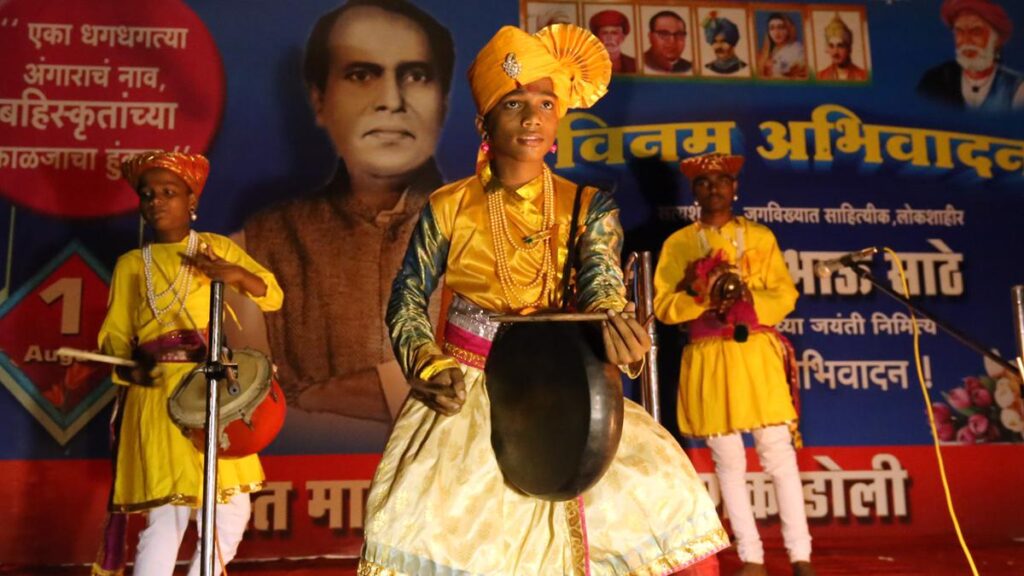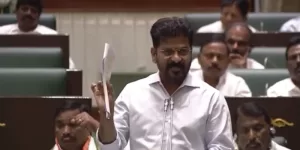Much has been said about the importance of literacy, and there can be no two opinions on the value of schooling and learning writing. Yet, the literary past of India has several amazing instances of literary creators who entered the field without having the benefit of a proper education. Among Indian poets I most admire are Ravji Patel in Gujarati and Arun Kolatkar in Marathi. Ravji Patel had hardly attended a year or so of college. He died in a Nadiad hospital as a rather neglected patient, more out of loneliness than out of his ailment. Kolatkar matriculated in rural Kolhapur and then moved to Bombay to work in advertising. He shot to fame with his English sequence poem Jejuri receiving the Commonwealth Poetry Prize. These poets make scholar-critics wonder if writing poetry is dependent on learning language at all. But, there are instances that make even such a question look completely meaningless.
In Marathi, Narayan Surve was quite a poetic genius. He did not know if he was born an orphan or was abandoned as a child. All that he remembered was growing up sleeping on Bombay’s footpaths. He had to teach himself. He went on to become a workers’ union activist and produced poems of great emotional depth. His first collection of poems was published in 1962, and the next one, Majhe Vidyapith (My University; 1966), brought him into the limelight.
Then, there was Namdeo Dhasal, whose childhood was spent in Bombay’s infamous quarters. Dhasal surprised readers of poetry with the power of his metaphors. His Golpitha has come to be the irreplaceable icon of modern Marathi poetry. Similarly, there was Bahinabai Choudhari, who brought into mainstream literature a genre of innocence and a regional variety of language which has hardly any parallel in feminist literature. Even more striking was the Adivasi woman writer Najubai Gavit, who produced a life-fiction which is nothing short of a miracle.
A long history
When I think of these creators of modern Marathi literature, my mind goes back to the historical times in other parts of the country. Akka Mahadevi, who continues to inspire women even in the 21st century, gave poetry in Kannada a power and magic that have not diminished over the centuries. One can easily add to this list the names of Meerabai and Kabir, the greatest poets in Indian literature. The “unlettered” makers of literature have dominated the literary scene in India for as long as the country has been producing literature. Perhaps, the legends associated with Valmiki, considered a forest dweller, and Kalidasa, who was said to have been a rustic idiot before he turned to composing his immortal verses and plays, are not entirely unfounded. I have no doubt that if one were to compile information on unlettered writers in India, one would almost have to think of an encyclopaedia.
Should such a work ever be brought out, one of the most outstanding chapters in it would be devoted to Annabhau Sathe. When I think of him, I cannot help but think of the enigmatic French writer Jean Genet, author of Balcony and Maids, a playwright and theatre director. Genet was born of a prostitute who offered him for adoption when he was only seven months old. Though adopted by an affectionate family, Genet got into the life of petty crime and became a vagabond. He was jailed several times and expelled from several countries. But later, he decided to give his life a new turn and met Jean Cocteau, who helped him get his first novel published. After 10 convictions for all the “crimes” and “indecency” he had committed, he was punished with a life sentence. Jean Cocteau and Jean-Paul Sartre intervened, and the President of France decided to set aside Genet’s sentence. Thus was found a great French writer, later celebrated throughout the world for his plays, dramatic productions, and non-fiction about the Middle East.
I think of Genet every time I think of Annabhau, who was no less in literary talent than Genet. However, Genet had his Cocteau and Sartre to support him. Annabhau was, unlike Genet, an entirely self-made man. Annabhau Sathe and Narayan Surve in Marathi, compared with the French dramatist, show that the struggle of downtrodden Indian writers, though of the same epic tenor, has dimensions that make it even more heroic. Namdeo Dhasal, Narayan Surve, and Annabhau Sathe make Indian literature what it is, a never ceasing source of courage and hope.
Not having the benefit of any decent schooling, having had to slog off his precious childhood years as a stray labourer, having had to leave behind his village in Sangli district of south Maharashtra and to work in Bombay in order to just stay alive, Annabhau had no leisure time to think of poetry and music. Yet, he hit upon inspiring poetry and heart-changing theatre. He made use of his talent to motivate people and get them to think of the poor and the wretched of the earth.
During the movement for a “‘united state of Maharashtra”, Annabhau’s song “My beloved is so far, so distant” moved millions and acquired an iconic stature that no single poem in Marathi had ever before gained. The literary forms he used ranged from songs, poems, ballads, the Tamasha theatre, prose, fiction and public orations. It is astonishing that he excelled in each of these genres. Annabhau’s life was short. He died before his 50th year, and this short time was filled with many political movements and a harsh struggle for survival. Yet, Annabhau remained prolific, producing 35 novels, just to mention one among the many genres he excelled in.
A work of genius
Of these, Fakira was recognised immediately on its publication as the work of a genius. It tells the story of a young man and his crusade for the rights of people of his community in the British regime. Its impact on the Marathi literary sensibility was so deep that within a few years of its publication, it motivated a large number of young writers to write about socially realistic themes and about Dalit communities. Annabhau’s work inaugurated in the 1960s a brilliant literary movement which later came to be known as “Dalit Literature”. He was for it what William Wordsworth was for British Romanticism. Annabhau deals with the religious practice or ritual called “Jogin”, which forced helpless women to be dedicated to temples. The common myth was one of winning the right to hold a Jogini fair in the village. It was a collective traditional belief that such a Jogini fair would bring good rains for a bumper agricultural production and prevent epidemics. This novel begins with romanticising the story of a bloody contestation between two villages, namely Shigoan and Wategaon, for bringing a jogini forcibly to their own village. Annabhau Sathe reconceptualised through Fakira the history of vulnerable masses, Mangs, Mahars, nomadic tribes, and criminal tribes. He also demonstrated how these communities revolted against all odds in their daily lives and how they revolted against the coercive rule of feudalism and imperialism. Annabhau consciously kept his writings artless. He gave paramount importance to the lived experiences of the common folk and how his protagonists proved their agency for the emancipation of the vulnerable.
When I think of all these writers whose life conditions might have forced them to live a life of illiteracy and ignorance, I wonder if their ability to observe social ills and injustice and their courage to speak for the marginal people somehow eludes those who have the means to educate themselves and the material means which ideally should make them speak against injustice. Yet, the “literate” ones observe silence, when speaking is necessary. Perhaps, Indian democracy requires more of unlettered writers, more of those compassionate and courageous voices to bring the republic back to the norms envisioned in the Constitution. The well-fed, whats-apping bhakts of powers that be, the self-seeking devotees of pleasure and power can barely think or say what needs to be said. Despite their avowed advocacy of national pride, their understanding of how our nation was made and who made it appears woefully shallow.
(Ganesh Devy is a cultural activist and founder of Dakshinayana. Courtesy: Frontline magazine.)




